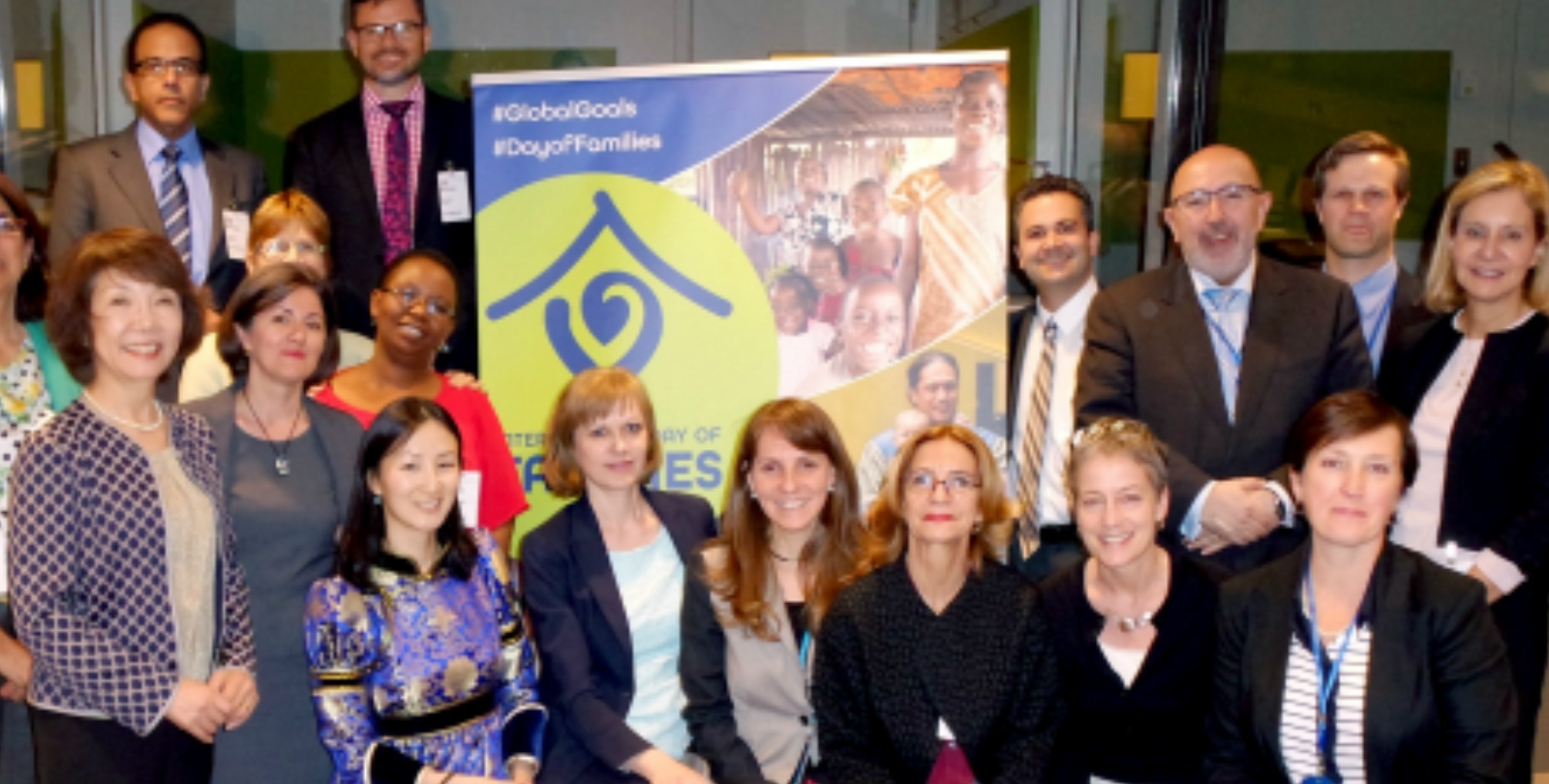
Theme: Families, healthy lives and sustainable future
The central goals of the 2030 Agenda for Sustainable Development focus on ending poverty, promoting shared economic prosperity, social development and people’s well-being while protecting the environment.
Families remain at the centre of social life ensuring the well-being of their members, educating and socializing children and youth and caring for young and old. From a policy perspective, taking families into account in the implementation of Sustainable Development Goals has a potential to speed up the achievements of many targets relating to individuals’ well-being.
A number of family policies, such as those supporting the caregiving role of families, work-family balance for parents, empowering families to support their individual members’ health, education and well-being, have been found to contribute to overall development goals. Still, a broad range of family policies enacted at national levels and relating to different facets of family life have an often untapped potential to further contribute to the achievement of many national development goals.
In particular, family-oriented policies can contribute to the achievement of Sustainable Development Goals 1 to 5 relating to doing away with poverty and hunger; ensuring healthy lives and promoting of well-being for all ages; ensuring educational opportunities throughout the lifespan and achieving gender equality.
The theme of this year’s observance of the International Day of Families focuses on Sustainable Development Goal 3: Ensure healthy lives and promote well-being for all at all ages.
Families have a unique role in ensuring health and well-being of children. Parents can improve children’s health outcomes by providing emotional support, ensuring preventive and sick healthcare visits, including timely immunizations and proper treatment in times of illness. In turn, a number of policies and programmes, can effectively assist parents in ensuring proper care and thus better health outcomes for their children.
Policies and programmes that increase family financial resources or improve caregiving behaviours also have the potential to positively influence child health and wellbeing, particularly for vulnerable families. For instance, cash or in-kind transfers, such as child allowances, or conditional cash transfers requiring parents to ensure their children’s preventive healthcare and school attendance go a long way in to promoting children’s health and education outcomes.
In addition, family policies for work-family balance impact health outcomes of all family members, especially the new-borns. Paid parental leaves promote children’s well- being. For instance, maternity leave enables mothers initiate and sustain breastfeeding, which results in lower risk of a number of illnesses for infants and mothers themselves. Paternity leaves help fathers establish strong bonds with their children and promotes men’s involvement in household responsibilities.
A number of work-family balance policies, such as flexible work schedules boost parent’s capacity to be available for their children and ensure proper care. Policies and programmes promoting safe and stable family environments and positive parenting also contribute to emotional and physical well-being of children and youth.
Moreover, appropriate polices are also needed to help families care for older adults, persons with disabilities and other vulnerable family members. Ensuring healthy lives and promoting well-being at all ages necessitates improvements in care provisions for older persons, be it at home or in care facilities, in line with older adults’ preferences. In this respect, an area still largely ignored by policymakers is the extension of parental leave to include care for older persons. In rapidly ageing societies this issue is bound to grow in importance in the years to come.
This year’s observance of the International Day of Families is to raise awareness of the role of families and family policies in promoting healthy lives for sustainable future. Academics and practitioners will address issues relating to family environments and work-family balance to improve health outcomes for all family members. Discussions will also focus on the role of parents in youth and children’s well-being, with particular attention to the role of men, as well as inter-generational transfers and the well-being of older adults.
References:
“Transforming our world: the 2030 Agenda for Sustainable Development”, United Nations, 2015 (A/RES/70/1)
Report of the Secretary-General on the Implementation of the objectives of the International Year of the Family and its follow-up processes, United Nations, 19 November 2015 (A/71/61-E/2016/7)
Message from UN Secretary-General Ban Ki-moon
English | Français | Español | Русский | عربي | 汉语
Biographical notes of panellists
Presentations
- The Effects of Involved Fatherhood on Families, and How Fathers can be Supported both at the Workplace and in the Home by Scott Behson & Nathan Robbins
- Families, Parents and Youth Well-being by Rosario Esteinou
- Safe and Supportive Family Environments and Children’s Well-being by Daryl Higgins
- Work-family Balance and Health Outcomes by Zitha Mokomane
- Families, Intergenerational Transfers and Well-being of Older Adults by Wendy Wang
Digital Cards: Please click on the photos below and share them on social media using hashtags: #GlobalGoals and #DayOfFamilies
Radio
- UN Radio Interview with Annemie Drieskens, President, Confederation of Family Organisations in the European Union (COFACE)
Video
 Welcome to the United Nations
Welcome to the United Nations




